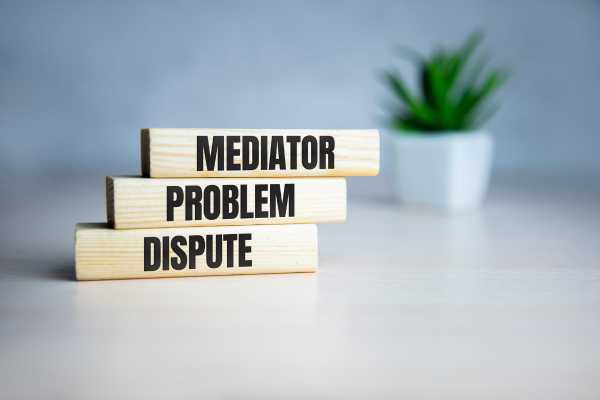Trusting the mediation Process
The presence of MIAMS mediator who is trained in resolving disputes is just the thing that can help calm enable constructive communication and help you arrive at a mutually beneficial agreement.

The presence of MIAMS mediator who is trained in resolving disputes is just the thing that can help calm enable constructive communication and help you arrive at a mutually beneficial agreement.

When there is a divorce, there are a lot of loose ends to be tied up. There are questions about how finances, assets and debts are to be handled, arrangements regarding child access, how the various personal items acquired during the marriage are to be divided up fairly.
It is not possible for both parties under the circumstances to be content with the resolution of these problems, but it is always possible to reach a solution satisfactory to both parties. The method used to arrive at a consensus on these disputes is called mediation.
It is carried out through discussions with the help of a trained mediator who can counsel both parties to arrive at the best possible solution.
For MIAMS mediation to be successful, it needs to ensure that the parties to the process are given full confidentiality. The discussions that take place during the mediation process will be lengthy and sometimes even acrimonious.
A lot of pent-up bitterness may arise. This is not a process that calls for airing family skeletons in front of the world. It takes places behind closed doors, and the discussions are confined to the two parties and the mediator. None of the discussions will be disclosed to third parties or made public.
When a couple takes their dispute to the court, a judge makes the decisions based on the facts presented to him or her. But mediation is a different process. The mediator is not the one making the decisions; the parties to the dispute are.
The mediator’s job is merely to guide the ex-spouses through a discussion and helps them see the issue from different perspectives.
The mediation process ensures that there are no underhand dealings. The mediator is obliged to be fair and inform both the parties of all proposals and counter-proposals so nothing is hidden its very transparent and open process as its the only way of gaining and maintaining all parties trust in the process.
The MIAMS mediator must use simple language and must be easily understood. They must be able to explain the various issues clearly. Once this information is obtained, each makes a choice based on the information they have. This process is conducive to reaching an agreement.
Mediation has a high rate of success and as such, is recommended to spouses who find themselves arguing over the smallest things.
The entire mediation process is fully voluntary. There can be no forcing the spouses to enter into mediation without full consent of both.
The more the effort put into the process, the better the outcome however. The parties can agree on a time suitable for both to hold the mediation meetings.
This means that they do not have to drop everything to rush to a meeting. This makes for a far more relaxed procedure, which again stands a far better chance of succeeding
The presence of a third party mediator who is trained in resolving disputes is just the thing that can help calm down the partners and arrive at a mutually beneficial agreement.
General information about Mediation, Please click the links below to find out more info:
Family’s are deeply affected by divorce or separation, especially when there are children in the family. Often these painful situations can be helped with the supportof a mediator who will hold a Mediation Information Assessment Meeting or MIAM. A MIAM can guide communication and set the tone for the goals of mediation.
When attending a court proceeding on the matter, the family will need to present an FM1 (Family Mediation 1 form) which confirms that a MIAM has been held.
As of April 2014, significant changes were made to the judicial system regarding separation and divorces, particularly where children were involved. These changes ensure that the welfare of the children is paramount, with minimal impact on the children and as little negativity as possible. One of the major changes was a requirement for a mediation session or MIAM to be attended before any court proceedings to do with financial or custody matters (hence the need for a FM1 to be produced).
If the split is acrimonious and both parties find it difficult to be in the same room, as would happen with face to face mediation, it is possible to ask for shuttle mediation.
Shuttle sessions happen when the two parties are seated in separate rooms either virtually or physically and the mediator shuttles between the two, discussing issues and offering solutions.
Shuttle mediation is often a good solution with distance between the parties allowing for rational and reasoned thinking.
MIAMS Mediators can also help with will disputes: resolving issues between and coming to an acceptable compromise to the conflict that arises as a result of separation.